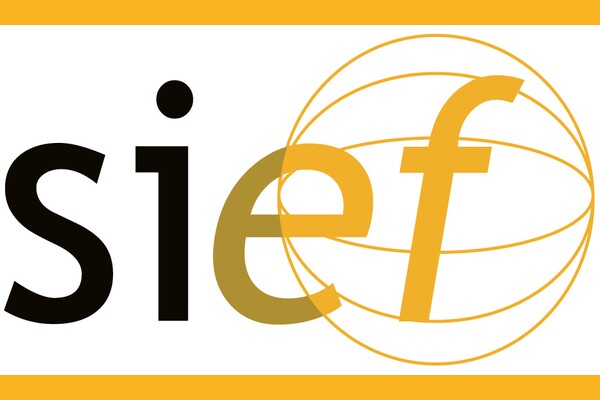
Calls for Publications
Call for abstracts for book chapters on “Feeling Museums. Collecting, guarding, and evoking emotions through heritage”. Article proposal can be sent in until August 31st, 2025.
Call for Papers for Ethnologia Fennica 1/2026 on “Words and Concepts”. Article abstracts can be sent in until June 23rd, 2025.
Call for abstracts: Feeling Museums. Collecting, guarding, and evoking emotions through heritage
Museums are one of the most visible heritage institutions. They not only transmit knowledge but also construct understanding about the different ways of living and conceiving the world. Both knowledge and understanding are attached, transformed, and created in connection with values and emotions. In this vein, feelings, emotions, and affective practices are essential features of museums. They also have the potential to enhance processing and managing difficult emotions and experiences: to create understanding towards the experiences of others, and to create a platform for sharing both empathy and learning. All this has become even more important in a time in which polarization and questioning of democratic values have become more visible features in many societies. Museums are situated between different emotions and feelings, but via the interplay of collections, professionals, partners, and audiences, museums can also be understood as feeling entities. This all affects how inclusion and exclusion are experienced in museums.
We invite abstracts for book chapters that discuss the role of emotions in the different stages of museal work, including e.g., collecting, caring, exhibiting, and co-curating. We are interested in topics that discuss the ways emotions are (knowingly) recognized, acknowledged, and evoked, or distanced, denied, and ignored in museums. We aim for an international edited volume dealing broadly with the above-mentioned topics in different national and thematic contexts, both in everyday practices and more sensitive or exceptional occasions. Your book chapter may touch upon one of the suggested topics – however, the list is not comprehensive:
- How are emotions present in collection work and documentation in museums? Are emotions consciously documented, or are they bypassed as trivial or irrelevant?
- How do museums guard different emotions aroused by heritage? What kind of emotions do collections rouse in their caretakers? How are the different emotions cared for democratically, considering all parties involved? How do museums care for their communities?
- How consciously do museums consider emotions when planning and designing an exhibition or an event? How can emotions be curated? By what means can the experienced emotions be grasped? What skills or competences are needed for facilitating emotions evoked in museum audiences?
Please send your article proposal to Inkeri Hakamies (inkeri.hakamies(at)helsinki.fi) by 31st August 2025. Your proposal should include:
- An initial title
- An abstract (max. 300 words), which indicates clearly the research question and/or objective of the article
- 3–5 keywords
- Five most relevant bibliographical sources
The manuscripts will be peer-reviewed and published by an international academic publisher. The anthology is part of the project Touching Collections at the University of Helsinki and is edited by Inkeri Hakamies, Pia Olsson, Johanna Pohtinen, and Anna Rauhala. The initial schedule is as follows:
- End of call for abstracts 31st August 2025
- Editor decisions by 30th September 2025
- Article manuscripts ready by 31st January 2026
- Peer-review process February-June 2026
- Revised manuscripts ready by 31st August 2026
- Published volume by the beginning of 2027
Call for Papers: Ethnologia Fennica 1/2026
Ethnologia Fennica is an English language online journal that publishes original scholarly articles, review articles, congress reports and book reviews that promote ethnological research. The articles undergo double-blind peer review. See https://journal.fi/ethnolfenn
CFP: Words and Concepts
Words and concepts are at the core of all research, playing a powerful and essential role in defining research questions, analysing research materials, theorising, and interpreting the phenomena under study.
In methodologies of cultural studies such as ethnography and cultural analysis, words and concepts are tools to describe even difficult-to-express phenomena, such as affective experiences and tacit knowledge. To engage readers and address difficult issues, some researchers use more creative styles of writing, such as ethnographic fiction. Sometimes the words that best capture a phenomenon stem from theoretical literature, sometimes from the community being studied. Selecting the right concepts support analysis and introduce new perspectives on the research topic but choosing them can be problematic. Avoiding certain concepts and favouring others can be an ethical choice. Restricting the use of certain concepts may also be driven by political goals or funding policies.
In this call for papers, we invite researchers to reflect on conceptual work in their studies. We call for research and review articles that explore the choices and practices of finding, defining and using concepts. We are interested in different aspects of conceptual work, such as the creation of a new concept or the use of established concepts in analysis. Reflections on trendy, forgotten, or even forbidden concepts are encouraged. Are there particular words or concepts that have become problematic and need to be redefined? How do concepts travel to Ethnology from other fields? We are also interested in examples of how creative writing practices can enhance the research process or the communication of its results.
Please submit your article abstracts by June 23rd. After preliminary approval in August, the authors should submit their full article manuscripts by November 30th. The deadline for reviews, reports, and commentary texts is February 28th (2026). The issue will be published in June 2026.




